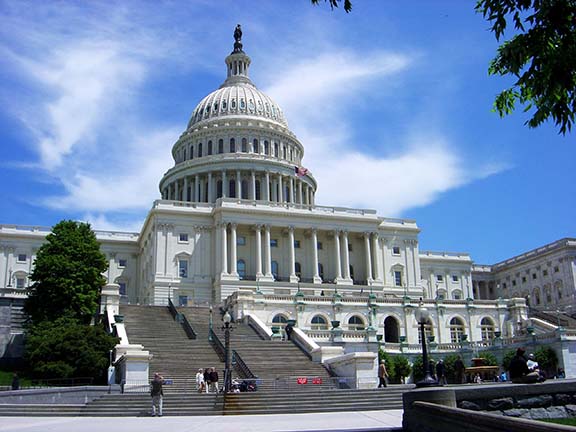The GPS program appears well positioned to weather another round of budget cuts, although some contractors that support the program may not be so fortunate.
“I would expect GPS will be relatively protected (with) continued investment and modernization of the satellite constellation.” said Robert Levinson, a senior defense analyst for Bloomberg Government during an October 28 briefing.
“GPS is in fairly good shape,” confirmed an expert familiar with the Air Force’s budget.
The GPS program appears well positioned to weather another round of budget cuts, although some contractors that support the program may not be so fortunate.
“I would expect GPS will be relatively protected (with) continued investment and modernization of the satellite constellation.” said Robert Levinson, a senior defense analyst for Bloomberg Government during an October 28 briefing.
“GPS is in fairly good shape,” confirmed an expert familiar with the Air Force’s budget.
Speaking on condition of anonymity, the expert was “quite surprised” at the funding emphasis the service gave to GPS. Under the budget plan for fiscal year 2014 (FY14) — and the plan so far for FY15 — the program, including the new OCX ground system, should be able to meet requirements, according to this expert.
While the government side of the GPS program may be enjoying a measure of protection, the contractors supporting its efforts are less likely to be as lucky.
“In [FY14] contractors are going to take the vast brunt of the cuts,” said one of the Bloomberg team of analysts, which included Kevin Brancato, Cameron Leuthy, and Duncan Amo. “The Defense Department . . . is going to lay off about one percent of the civilian workforce according to internal documents we’ve seen. It is not going to cut military personnel. So, contactors, by default — weapons systems producers, service contractors, and the like — are going bear the brunt of the burden here.”
GPS contractors large and small, and their staff, have already taken a hit. Some 2,000 of the employees at Aerospace Corporation’s El Segundo facility, which supports the GPS Directorate, were furloughed during the shutdown. Others firms had to have employees tap vacation days to get full paychecks. Some did not get paid.
Furloughs Emptied PNT Office
Government employees are also scrambling — but for a different reason. They will get paid for the shutdown period but are now racing to catch up on undone tasks.
“You have to work now with people’s doubly-filled schedules because meetings that were delayed are fitting into schedules where they already had meetings,” said Jan Brecht-Clark, the director of the National Coordination Office for Space-based PNT. Her department was nearly emptied by the shutdown, forcing delays in the coordination of interagency and some classified documents.
“There were really only three people in the office,” she said. “Even though we are an office of representatives from different departments, each department was affected. I was on furlough myself.”
The same scenario could play out again if a spending deal is not reached by the beginning of the year — a possibility budget experts suggest is likely.
”The politics haven’t changed at all. It is still just as hard to raise taxes and cut entitlements now as it was before the shutdown occurred,” said Stan Collender, national director of financial communications for Qorvis Communications and an expert on the federal budget.
Although the congressional committee tasked with keeping the government open and coming to a deal on sequestration has already begun meeting, Collender is pessimistic about its chances. “I give it no better than 25 percent — 3 to 1 against.”
The government is now funded through January 15 and the debt ceiling will need to be raised again by February 7. The congressional committee is supposed to have a deal in place by December 15.
“You do not want to see [the shutdown] repeated,” said one contractor. “I’d hate to see the holidays arrive and then come back and have problems in January.”
Sequestration kicks in for FY14 15 days after Congress adjourns — likely sometime in January but no later than January 15, according to Todd Harrison, senior fellow for defense budget studies at the Center for Strategic and Budgetary Assessments. If allowed to stand unaltered, the sequestration plan will shave another $54.7 billion off the defense budget according to the Bipartisan Policy Center. Most of that will be in harder-to-take cuts because any easy savings have already been exploited during the first round of sequestration-driven reductiuns.
“FY14 could be more dramatic,” said the Bloomberg.gov team. “FY15 could be more dramatic.”
“The ultimate fallback here, the ultimate default position, is the sequester,” which will give Republicans the spending cuts they want even if no deal is reached, said Collender. And no one should assume the GOP will work hard to protect the Pentagon’s programs, he said.
“The Republicans have shown great willingness to throw defense under the bus. Why does anyone think in will be different now?“





